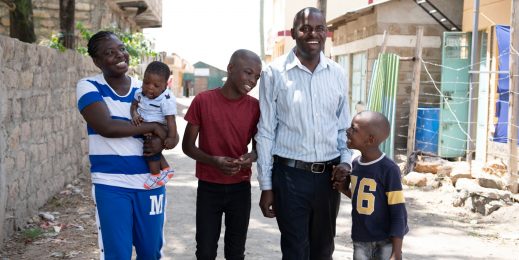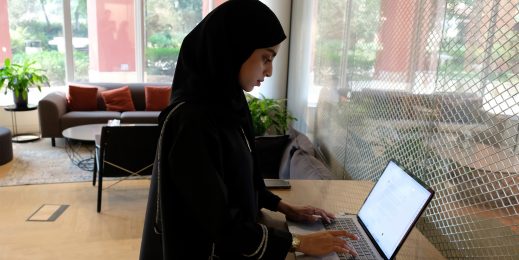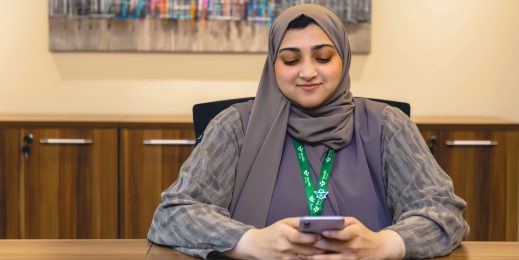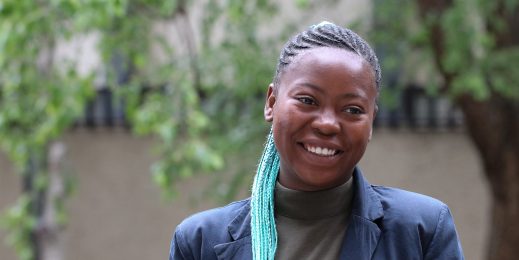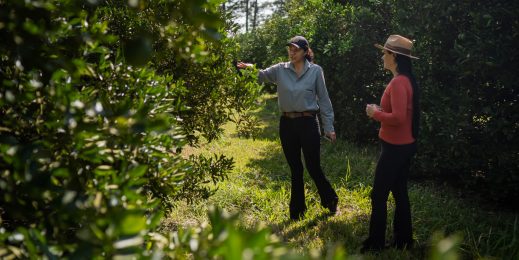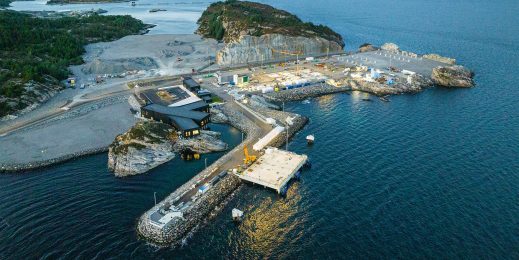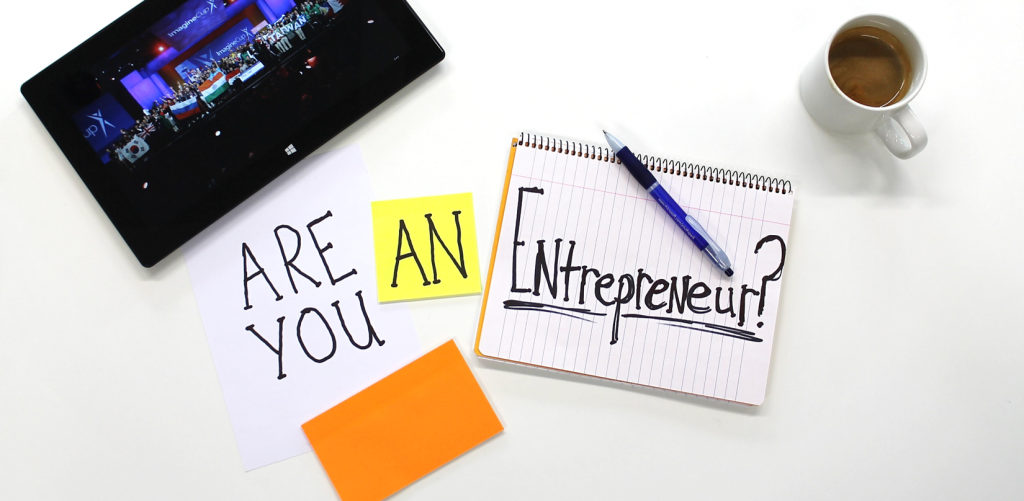
Imagine Cup alumni share some words of wisdom with those who want to create their own business
Half of European youngsters are now looking to pursue entrepreneurship as a career option, rather than go down a traditional corporate route. As many young people prepare to take control of their own career paths, we’re seeing a new breed of bright young Europeans thinking big and cultivating ideas that could define their future.
However, for aspiring entrepreneurs, taking the first steps towards launching a business can be daunting. Many don’t know where to start. Competitions such as Microsoft’s Imagine Cup provide a fantastic stepping-stone for young students. The initiative supports teams as they develop an idea into a fully-fledged project, and cultivates skills that will benefit students throughout their careers.
To gauge an understanding of the challenges faced by a new generation of entrepreneurs, we spoke to some Imagine Cup alumni. We asked them about their own experiences, and we also asked them to provide advice they’d give to any Imagine Cup participant – or any young person thinking about starting a business.

All of the alumni we spoke to were adamant that finding a good mentor is critical to success. Romanian team Simplex found their mentor in the shape of startup accelerator, Health Box. The team there helped them to understand how to build a business around Mira Rehab, their idea for a software platform designed to make physiotherapy fun and convenient for patients recovering from surgery or injury.
“Operating in the health sector, the guidance provided by Health Box was invaluable,” said Cosmin Mihaiu, founder of Mira Rehab. “Startup accelerators aren’t just about investment – health is an incredibly tough nut to crack and often adverse to innovation. Health Box has helped us to make first-class industry contacts and navigate obstacles we wouldn’t have otherwise been aware of.”
Kiril Rusev, co-founder of Bulgarian finalist and education software specialist Nimero, agrees, having received mentorship from Microsoft after the Imagine Cup. “It’s important for entrepreneurs to search out support,” said Kiril Rusev. “Our team was made up of developers – we had no idea about running a business, about admin, accounting, legal. Trying to learn all this independently will significantly slow you down, so finding a good mentor is incredibly beneficial.”
The benefits of having a mentor extend far beyond the competition. Two teams from Norway and Russia continued to work with their mentors long after the competition curtain had closed. Hans Olav, one of the co-founders of the Norwegian World Finalist team, Medi Watch, actually counts his mentor as part of his friendship circle these days. “Having worked together so closely during the preparation and the finals, we got to know our mentors very well and they’ve become an important part of our lives – both professionally and non-professionally!
Alex Vilasuck from this year’s winning Russian team, IzHard, agrees. “Since the end of the competition, we’ve stayed in contact with our mentor, Nastya, who still advises us on how we can take our game to the next stage of its development.”
Another piece of advice our alumni agree on is the need to engage with audiences sooner rather than later. Developing projects in isolation – without continual road testing – raises the risk that a solution will fail to address problems that the target market actually faces day to day, even if it is technically impressive.
“The most important part of our development as a company was making contacts within our target market,” continued Rusev from Nimero. “Once the team started talking to teachers face-to-face we found the product progressed at an exponential rate. From this we were able to drive a pilot scheme that actually got Nimero technology into schools.”
The creators of MIRA had a similar experience. By talking to practising physiotherapists, the team were able to identify the key reasons why patients often lose patience during rehabilitation, and the best ways to keep them motivated. What’s more, they learned about the latest developments in clinical practice and treatment, ensuring that featured exercises and methods used to track progress are as beneficial for patients as possible.
Our alumni members offered insights that can be applied not only to the Imagine Cup finals, but also to pitching investors or speaking at industry conferences and events. Our teams found that coming up with an idea was the easy first step, but bringing those ideas to life and articulating the benefits of their solutions was tougher than imagined. Looking back on their experiences, both MediWatch and IzHard agree that preparing your pitch, or how you sell your idea, is vital.
In addition to coffee-fuelled late nights focused on technical development, Hans Olav from MediWatch spoke of the daunting experience of presenting the team’s project to over 100 people. Making sure your technology is ready to go before you get up on that stage may sound like a no brainer, but it’s the small details which can make all the difference in the final stages of the process.
Another obstacle for many is the language barrier. As a global competition, many Imagine Cup teams are not native-English speakers. Identifying a strong presenter who can sell the project on stage, in English, doesn’t have to be as daunting as it may sound. Anton Belousov, Microsoft’s Director of Audience Evangelism explains: “language can sometimes be a challenge, but in no way is it a serious barrier that can’t be overcome. A good idea transcends language and ideas shouldn’t stop flowing because of it.” This was definitely the case for Alex Vilasuck from Izhard who says that “practice, practice, practice was the key for us. Rehearsing the speech every day in English really helped boost our confidence when it came to the presentation”.
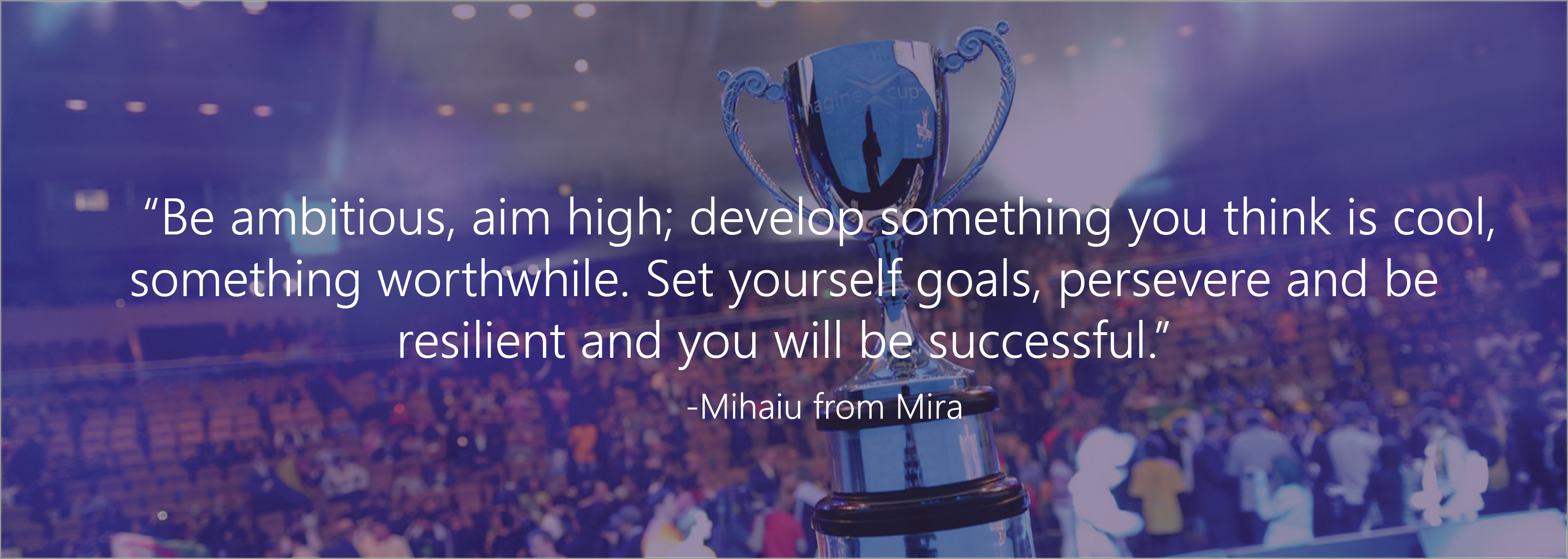
A big factor in both Nimero and Mira Rehab’s ongoing success is the resilience shown by their founders. While both were successful in local Imagine Cup competitions, neither placed in the world finals. And while Mira Rehab was accepted by the Health Box accelerator, it had been rejected by others. Despite these initial setbacks, both teams showed that persistence and belief in their project is a key ingredient when seeking success in entrepreneurship.
Mihaiu from Mira argues, “don’t let rejection, whether that be from a judge of the Imagine Cup jury, or someone else, change your mind if you believe you have a good product. Be ambitious, aim high; develop something you think is cool, something worthwhile. Set yourself goals, persevere and be resilient and you will be successful.”
This sentiment is echoed by Alex from Izhard: “each part of the competition involved overcoming my own initial limitations. Every time we got one stage further, it boosted our confidence and reminded us of how far we had come from the beginning, when we had no experience.”
All the teams recognise that the Imagine Cup was the catalyst to getting them where they are today. In fact, two of the Norwegian team members are now working for Microsoft, and they credit their competition experience, where they were able to gain exposure to the Microsoft business. The competition also helped them to identify the team’s strengths and weaknesses, understand what they wanted to achieve, and develop products that are fit for their intended markets.
This was the case for Kiril Rusev from Nimero, who has started a second company, Jumpido, built around an educational maths game that uses Microsoft Kinect. Kiril is now working with partners in 14 countries around the world. The Mira Rehab team is continuing to develop its product for clinical trials and recently featured on the home page of TED.com. The solution is considered by many to have the potential to significantly disrupt delivery of physiotherapy treatments.
The whole concept of the Imagine Cup was born out of an idea from Laurent Ellerbach, now the audience Marketing Manager for Microsoft in Central and Eastern Europe. At its core, it is about fuelling imagination. From the very beginning, the focus was to help and inspire students from around the world to be creative and build their technology skills. Despite the competition being over 10 years old, its values have not changed since day one. Helping young people think of ways to tackle world problems through technology has remained crucial. More recently, the competition’s focus is on encouraging participants to embark on the road to entrepreneurship through learning the ins and outs of what it takes for a business to be sustainable. For the budding entrepreneur, Imagine Cup is a fantastic experience which provides exposure and knowledge into the realities of translating an idea into a viable business opportunity.
Mihaiu sums up his experience of Imagine Cup and what it meant to him, “I’d never have thought we’d make it this far. If we’d known the hurdles we’d have to overcome, would we have done it anyway? I’ve put this question to the whole team and we all agreed we would. It’s not easy, it’s a rollercoaster, but it’s definitely an enjoyable ride”.
Imagine Cup 2016 entries are now open. Find out more information about the different contests for this year’s competition and register here. You never know where the competition could take you in the future











